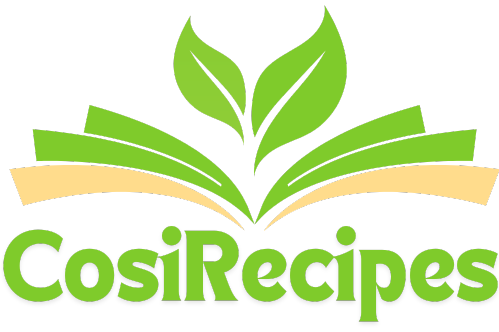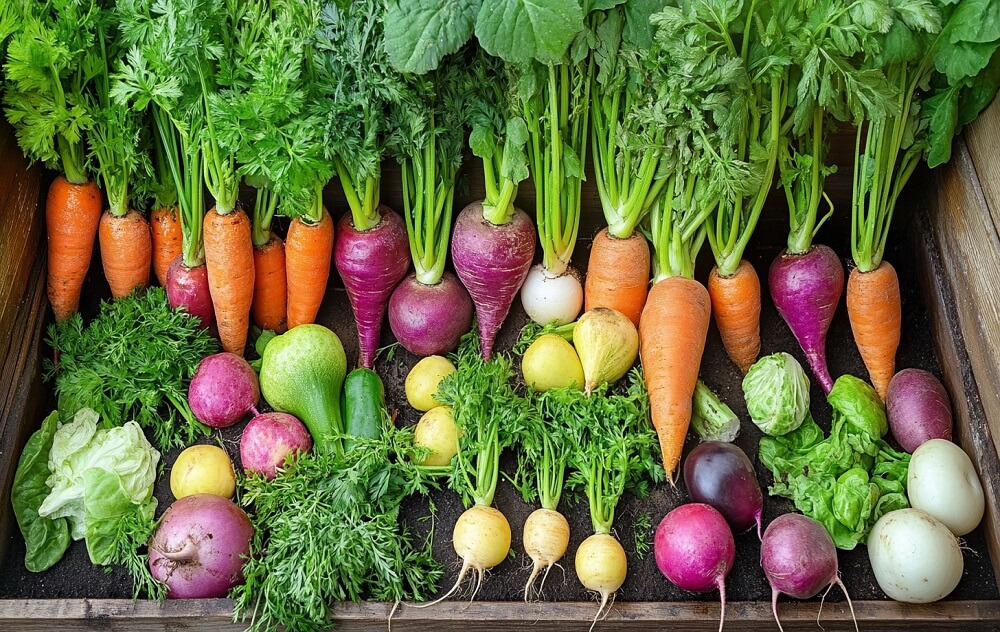Understanding carrot pairing guide is essential for creating balanced meals that maximize nutrition and flavor. While carrots are a highly versatile vegetable, their compatibility with certain foods can impact nutritional absorption with carrots and digestion. Poor food compatibility science can lead to diminished health benefits or even discomfort when eating carrots with certain ingredients.
Carrots are known for their rich supply of beta-carotene, fiber, and antioxidants, making them a staple in many diets. However, to make the most of their benefits, it’s important to understand which foods are best paired with carrots and which combinations might not work well.
In this guide, we’ll explore common carrot dietary myths, discuss incompatible vegetables, and provide insights into safe food combinations. By understanding how to balance digestion and food pairings, you can optimize your meals and ensure carrots remain a nutritious part of your diet.
Importance of Food Compatibility
- Helps avoid digestion and food pairings issues that can affect nutrient absorption.
- Prevents potential reactions caused by enzyme interactions with carrots.
- Ensures a harmonious balance of flavors and health benefits in your meals.
Carrots: Nutritional Powerhouses
Carrots are a staple in many diets due to their rich nutritional profile. They are:
- High in beta-carotene, essential for eye health.
- Packed with antioxidants and fiber for better digestion.
- A versatile vegetable that works in a variety of safe food combinations.
Purpose of the Article
This guide will delve into the nuances of carrot pairing, exploring:
- The science behind carrots and citrus reactions.
- Myths surrounding carrot dietary myths like pairing them with dairy.
- Tips for identifying incompatible vegetables and other foods.
- Practical advice for creating meals with optimal nutritional absorption with carrots.
By the end of this article, you’ll have a comprehensive understanding of the best practices for a carrot pairing guide to maximize their benefits while avoiding common pitfalls.
Carrots in the Context of Food Compatibility
What Is Food Compatibility?
Food compatibility science refers to understanding how different foods interact when consumed together. It includes examining their impact on digestion, nutrient absorption, and overall health. Proper combinations can enhance nutritional absorption with carrots and other foods, while poor pairings may lead to digestion issues or reduced health benefits.
Historical and Scientific Insights into Food Pairings
The idea of pairing foods strategically is not new. Ancient dietary systems, like Ayurveda, emphasized safe food combinations to promote health. Similarly, modern science supports these principles, with studies showing how some foods complement each other nutritionally, while others clash. For instance:
- Certain enzyme interactions with carrots can inhibit the digestion of other foods.
- Pairing carrots with acidic fruits, like oranges, can alter their nutrient profile, leading to the well-documented carrots and citrus reaction.
The Role of Carrots in Culinary Combinations
Carrots are a versatile vegetable that can be included in a variety of dishes, from salads to stews. However, their compatibility with other ingredients is essential for optimizing their benefits.
- Carrots work well with root vegetables and leafy greens, as these combinations align with digestion and food pairings.
- Pairing them with oils like olive oil enhances their beta-carotene absorption.
- However, combining carrots with dairy, such as milk, often raises concerns about carrot and dairy issues due to potential nutrient clashes.
Understanding how carrots interact with other foods allows you to create balanced meals and avoid the pitfalls of incompatible vegetables. As we explore these nuances, you’ll gain insights into making the most of this nutritious and versatile vegetable.
Carrots in the Context of Food Compatibility
What Is Food Compatibility?
Food compatibility science refers to understanding how different foods interact when consumed together. It includes examining their impact on digestion, nutrient absorption, and overall health. Proper combinations can enhance nutritional absorption with carrots and other foods, while poor pairings may lead to digestion issues or reduced health benefits.
Historical and Scientific Insights into Food Pairings
The idea of pairing foods strategically is not new. Ancient dietary systems, like Ayurveda, emphasized safe food combinations to promote health. Similarly, modern science supports these principles, with studies showing how some foods complement each other nutritionally, while others clash. For instance:
- Certain enzyme interactions with carrots can inhibit the digestion of other foods.
- Pairing carrots with acidic fruits, like oranges, can alter their nutrient profile, leading to the well-documented carrots and citrus reaction.
The Role of Carrots in Culinary Combinations
Carrots are a versatile vegetable that can be included in a variety of dishes, from salads to stews. However, their compatibility with other ingredients is essential for optimizing their benefits.
- Carrots work well with root vegetables and leafy greens, as these combinations align with digestion and food pairings.
- Pairing them with oils like olive oil enhances their beta-carotene absorption.
- However, combining carrots with dairy, such as milk, often raises concerns about carrot and dairy issues due to potential nutrient clashes.
Understanding how carrots interact with other foods allows you to create balanced meals and avoid the pitfalls of incompatible vegetables. As we explore these nuances, you’ll gain insights into making the most of this nutritious and versatile vegetable.
Foods That Are Incompatible with Carrots
Carrots are highly nutritious and versatile, but they don’t pair well with every food. Understanding these incompatible vegetables and other mismatched combinations helps optimize health benefits and avoid digestive discomfort.
Subsection 2.1: Vegetables
Carrots may not be compatible with certain vegetables due to their distinct enzymatic properties and nutrient profiles.
- Potatoes
Potatoes and carrots can clash during digestion. Potatoes, being starchy, require different enzymes for digestion than the fiber-rich carrots. This conflict can lead to bloating or slow digestion when consumed together.- Potatoes demand alkaline conditions for digestion, while carrots thrive in slightly acidic environments, causing a mismatch.
- Other Starchy Vegetables
Combining carrots with heavy starches like corn can dilute nutrient absorption and strain the digestive system.
Key Insight: These examples highlight how enzyme interactions with carrots may interfere with the breakdown of starchy vegetables, leading to suboptimal digestion.
Subsection 2.2: Fruits
Fruits, particularly acidic ones, can create nutritional conflicts with carrots.
- Citrus Fruits (Oranges, Lemons)
Pairing carrots with citrus fruits can cause chemical reactions that alter the absorption of essential nutrients like beta-carotene. Known as the carrots and citrus reaction, this combination may also lead to digestive discomfort, including acidity and bloating. - Bananas and Sweet Fruits
Sweet fruits like bananas are digested differently from carrots, which are primarily fiber-based. This can slow digestion and impact nutrient uptake.
Specific Case: Oranges combined with carrots can lead to an imbalance in nutrient profiles, potentially neutralizing key vitamins.
Key Insight: Avoiding these combinations aligns with food compatibility science and ensures that carrots retain their nutritional value.
Subsection 2.3: Proteins and Carbs
Certain protein and carbohydrate-rich foods may not pair well with carrots.
- Dairy Products (e.g., Milk)
The common notion that milk and carrots are a perfect pair is a myth. Carrot and dairy issues arise because the calcium in milk can interfere with the absorption of beta-carotene, reducing its effectiveness. - Starches (e.g., Rice)
While rice is often paired with carrots in dishes like fried rice, the high starch content can dilute the digestive enzymes needed for carrots. This results in potential nutrient loss and slower digestion.
Key Insight: Knowing these carrot dietary myths can help you plan meals that promote better nutritional absorption with carrots.
Subsection 2.4: Oils and Fats
Carrots are known for their fat-soluble nutrients, which require the right oils for optimal absorption.
- Incompatible Oils (e.g., Coconut Oil)
While healthy, oils like coconut oil may not enhance beta-carotene absorption effectively. Their fatty acid profile may not complement carrots’ nutrient needs. - Excessive Fatty Foods
Pairing carrots with heavy, saturated fats like lard can inhibit digestion and absorption, reducing their overall nutritional benefits.
Key Insight: Understanding the role of oils in safe food combinations ensures that the full benefits of carrots are realized.
Reasons Behind Incompatibility
Understanding why certain foods are incompatible with carrots can help avoid digestive discomfort and nutrient loss. Key reasons include digestive enzyme conflicts and challenges in nutritional absorption with carrots.
Subsection 3.1: Digestive Enzyme Conflicts
Carrots can slow digestion when paired with certain food types due to conflicting enzymatic requirements.
- How Digestion Works
Digestion involves specific enzymes that break down carbohydrates, proteins, and fats. Carrots, being rich in fiber and beta-carotene, require enzymes like amylase and cellulase. However, when combined with foods requiring other enzymes (e.g., starchy potatoes or acidic fruits), these processes can compete, leading to inefficiencies. - Enzyme Interaction with Starches and Proteins
- Carrots and starchy vegetables: Starch-heavy foods like potatoes need amylase to break down, but the fiber in carrots can slow this process.
- Carrots and dairy: Proteins in milk or cheese require protease enzymes, which may not work efficiently alongside carrot fiber.
Scientific Insight: This phenomenon is part of food compatibility science, where the body’s inability to process multiple enzyme requirements at once leads to bloating, gas, or nutrient depletion.
Key Takeaway: Avoid combining carrots with foods that demand drastically different enzymatic conditions for digestion.
Subsection 3.2: Nutritional Absorption Issues
Carrots are packed with nutrients, but their benefits can diminish when paired with incompatible foods.
- Fat-Soluble Nutrients
Carrots are a major source of beta-carotene, a precursor to vitamin A, which requires fats for proper absorption. However:- Saturated fats like lard can hinder the absorption process.
- Pairing carrots with oils like coconut oil may not provide the optimal fatty acid profile for nutrient uptake.
- Calcium Interference
When consumed with calcium-rich foods like milk, the mineral can bind with carotenoids in carrots, reducing their bioavailability. This is why carrot and dairy issues are often highlighted in dietary studies. - Vitamin C and Carotenoids
The well-known carrots and citrus reaction occurs when citrus fruits like oranges are consumed with carrots. The acidic environment can degrade carotenoids, reducing their effectiveness.
Scientific Insight: Poor food pairings can alter the chemical environment in the digestive system, affecting nutrient absorption and utilization.
Key Takeaway: Balancing food pairings is essential for maximizing the nutritional absorption with carrots.
Myths and Facts About Carrot Compatibility
Carrots are a beloved vegetable, but their compatibility with certain foods has given rise to many myths. Let’s explore and debunk these misconceptions with food compatibility science.
Myth 1: Carrots and Vinegar Are Incompatible
The Myth: Combining carrots with vinegar leads to nutrient loss.
The Fact: While vinegar’s acidity might seem harmful, it does not significantly impact the nutrients in carrots. In fact, pickling carrots in vinegar can preserve their nutritional value for longer periods. The combination is safe and widely used in culinary practices like pickling.
Myth 2: Carrots Should Not Be Eaten with Milk
The Myth: Eating carrots with milk causes digestive issues or even toxicity.
The Fact: This is largely a misconception. While there are carrot and dairy issues related to nutrient absorption—calcium in milk can slightly reduce beta-carotene uptake—it does not render the combination harmful. Consuming them together occasionally is perfectly safe, though not ideal for maximizing nutritional benefits.
Myth 3: Cooking Carrots with Other Vegetables Reduces Their Nutritional Value
The Myth: Carrots lose all their nutrients when cooked with other vegetables like broccoli or potatoes.
The Fact: Cooking carrots can slightly reduce their vitamin C content but increases the bioavailability of beta-carotene. Combining them with other vegetables is not inherently bad, though some incompatible vegetables might slow digestion if improperly balanced.
Clarification with Scientific Evidence
- The carrots and citrus reaction myth suggests that acidic fruits destroy carotenoids in carrots. While there is minor nutrient interaction, this pairing is not harmful in moderation.
- The idea that carrots are incompatible with all starchy foods is an exaggeration. Proper pairing strategies can balance digestion and nutrient absorption.
FAQs About Carrot Compatibility
Can carrots and milk be consumed together?
Yes, carrots and milk can be consumed together, but there are considerations to keep in mind. Milk is rich in calcium, which can interfere with the absorption of beta-carotene from carrots. This doesn’t make the combination harmful but may reduce the nutritional benefits of carrots. To maximize nutritional absorption with carrots, pair them with healthy fats like olive oil instead of milk.
What happens if you eat carrots with citrus fruits?
Consuming carrots with citrus fruits, such as oranges, can result in the carrots and citrus reaction. The acidity of citrus fruits may slightly degrade carotenoids, reducing their effectiveness. However, the combination is generally safe and can be enjoyed occasionally. For optimal benefits, avoid pairing carrots with highly acidic foods in large amounts.
Are carrots and starches compatible?
Carrots and starches like potatoes or rice can be challenging for digestion. The fiber in carrots and the starch in these foods require different enzymes for proper breakdown, leading to potential digestive enzyme conflicts. While the pairing isn’t harmful, eating them together frequently may slow digestion and nutrient absorption.
What are the best foods to pair with carrots?
The best pairings for carrots include:
- Healthy fats like olive oil to enhance beta-carotene absorption.
- Leafy greens for balanced safe food combinations.
- Herbs and spices like ginger, which complement carrots’ flavor while aiding digestion.
These combinations help maximize the health benefits of this versatile vegetable.
Safe Pairings with Carrots
Carrots are a versatile vegetable that pair wonderfully with many foods. Knowing safe food combinations ensures you get the best flavor and nutritional benefits from this powerhouse ingredient.
Subsection 5.1: Complementary Vegetables
Certain vegetables not only enhance the flavor of carrots but also complement their nutritional profile.
- Leafy Greens: Spinach, kale, and Swiss chard pair excellently with carrots in salads or stir-fries. These greens add a fresh, earthy flavor while boosting iron and fiber content.
- Bell Peppers and Zucchini: These vibrant vegetables blend well with carrots in roasted dishes or stews, providing a balance of sweetness and crunch.
- Root Vegetables: Beets, parsnips, and sweet potatoes are ideal companions for carrots. Their similar textures and natural sweetness enhance roasted or pureed dishes.
Key Insight: Pairing carrots with these vegetables avoids incompatible vegetables and enhances the dish’s overall taste and nutritional value.
Subsection 5.2: Proteins and Carbs That Work Well
Carrots can be part of balanced meals when paired with the right proteins and carbs.
- Proteins:
- Grilled chicken or turkey: Lean proteins complement the sweetness of carrots in soups or salads.
- Legumes like lentils and chickpeas: These create hearty and nutritious dishes when combined with carrots in stews or curries.
- Carbs:
- Whole grains such as quinoa, barley, or brown rice are great companions. For example, a quinoa and roasted carrot salad is both filling and nutritious.
- Sweet potatoes provide a double dose of natural sweetness and fiber in dishes like casseroles or sheet-pan dinners.
Recipe Idea: Combine carrots with chickpeas, quinoa, and tahini dressing for a Mediterranean-inspired bowl.
Subsection 5.3: Spices and Herbs
The right seasoning can elevate the taste of carrots while improving digestion.
- Herbs:
- Parsley and cilantro: These fresh herbs brighten the natural sweetness of carrots in salads or dips.
- Thyme and rosemary: Earthy herbs enhance the flavor of roasted or baked carrots.
- Spices:
- Ginger and cumin: These spices add warmth and depth to carrot-based soups or curries, while aiding digestion.
- Turmeric: Not only does it pair well with carrots, but it also boosts anti-inflammatory properties.
Seasoning Tip: Toss carrots with olive oil, garlic, cumin, and a pinch of smoked paprika before roasting for a flavorful side dish.
Conclusion
Carrots are a nutritious and versatile vegetable, but their compatibility with other foods plays a significant role in maximizing their benefits. Understanding food compatibility science helps you avoid incompatible vegetables and pairings that can hinder digestion or nutrient absorption.
Key Findings
- Carrots may conflict with certain foods due to digestive enzyme interactions or nutrient competition. For instance, pairing them with starchy vegetables like potatoes or acidic fruits like oranges can slow digestion or reduce the availability of beta-carotene.
- Myths surrounding carrot dietary myths, such as their incompatibility with milk, often stem from misunderstandings rather than actual risks.
Practical Advice
- Focus on safe food combinations: Pair carrots with leafy greens, lean proteins like chicken or chickpeas, and healthy fats like olive oil to boost their nutritional benefits.
- Avoid frequent combinations with foods that require drastically different digestive conditions, such as heavy starches or highly acidic fruits.
- Use spices and herbs like ginger, cumin, or thyme to enhance flavor and support digestion.
By understanding how to balance digestion and food pairings, you can enjoy carrots to their fullest potential. Thoughtful combinations ensure you benefit from their rich nutrients without compromising on taste or health.






